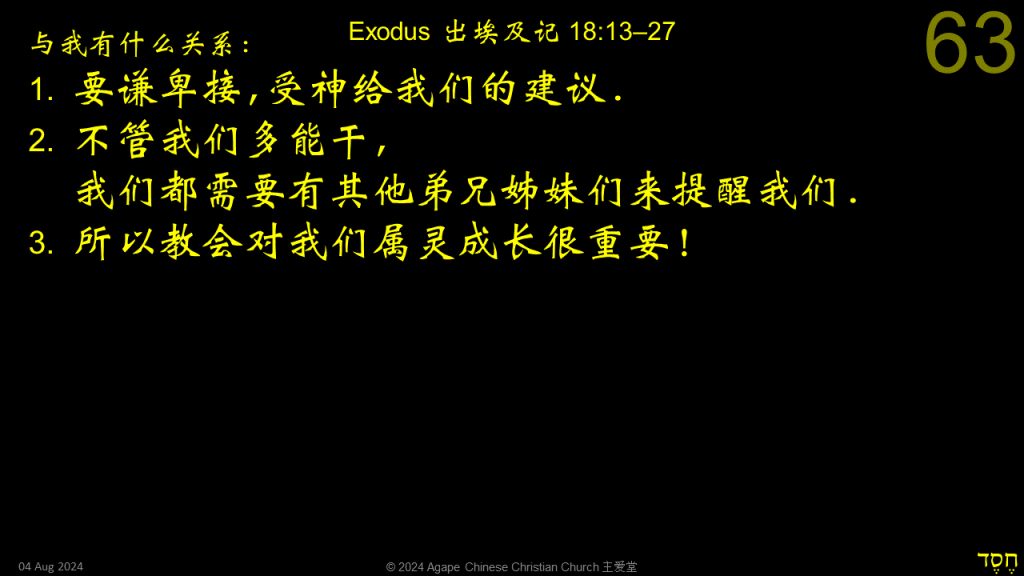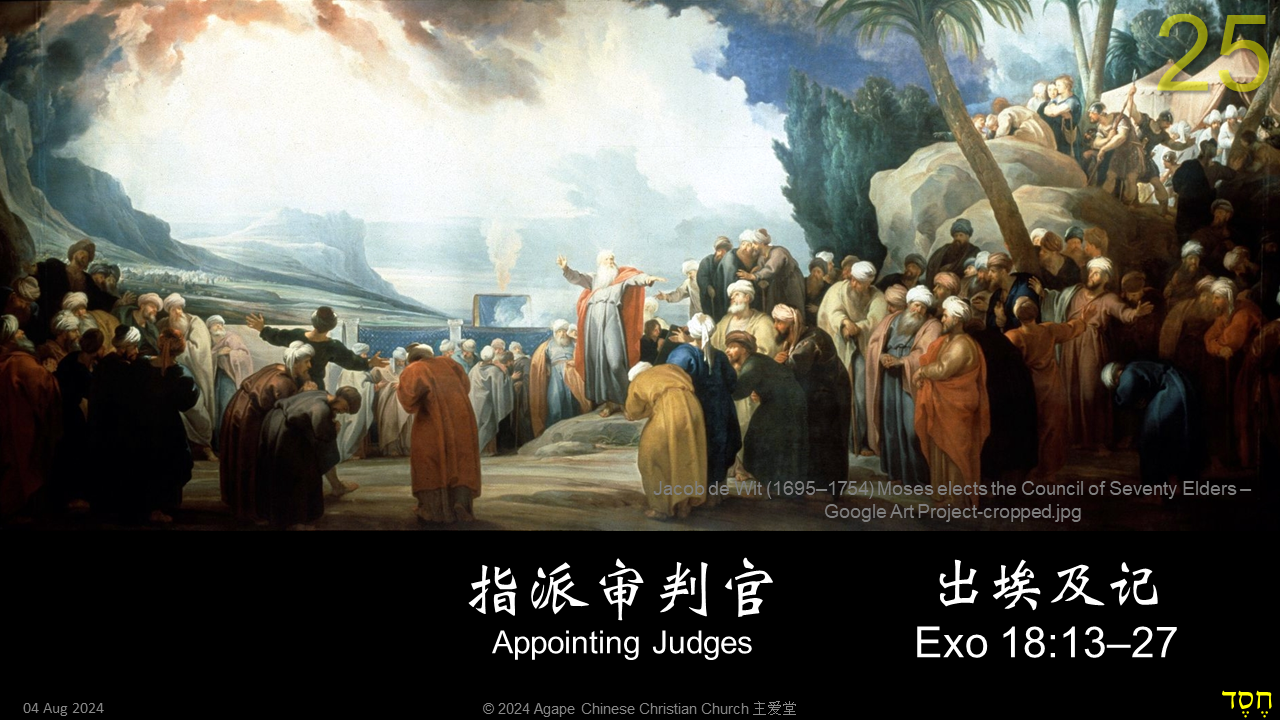指派审判官 Appointing Judges
出埃及记 Exo 18:13–27
Remember these points
I put these points at the top of my sermon-prep template to remind myself every week:
- Show that main point of passage relates to Jesus and his saving work
- (1 Cor 1:18) A truly gospel-centred message will not be acceptable in a synagogue or mosque
- Did I proclaim the gospel as the headline news of the sermon, rather than as a “by the way…”?
- Unbelievers are called to repent, believe, and be saved
- Believers are encouraged to abandon their old self, renew their minds, put on the new self in Christ
- Preach simple sermons, so that God’s people can see Christ more clearly and love him more dearly
News
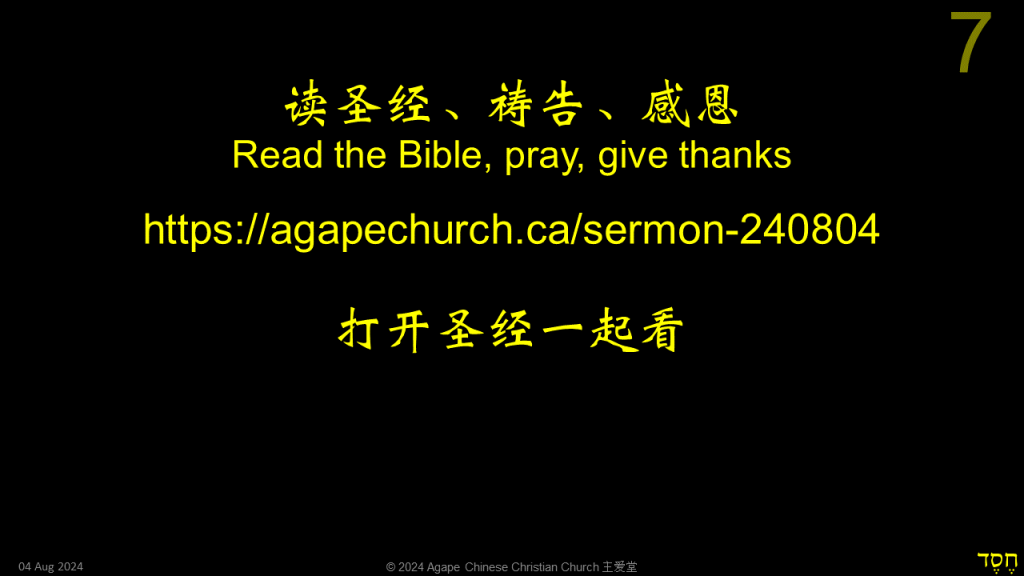
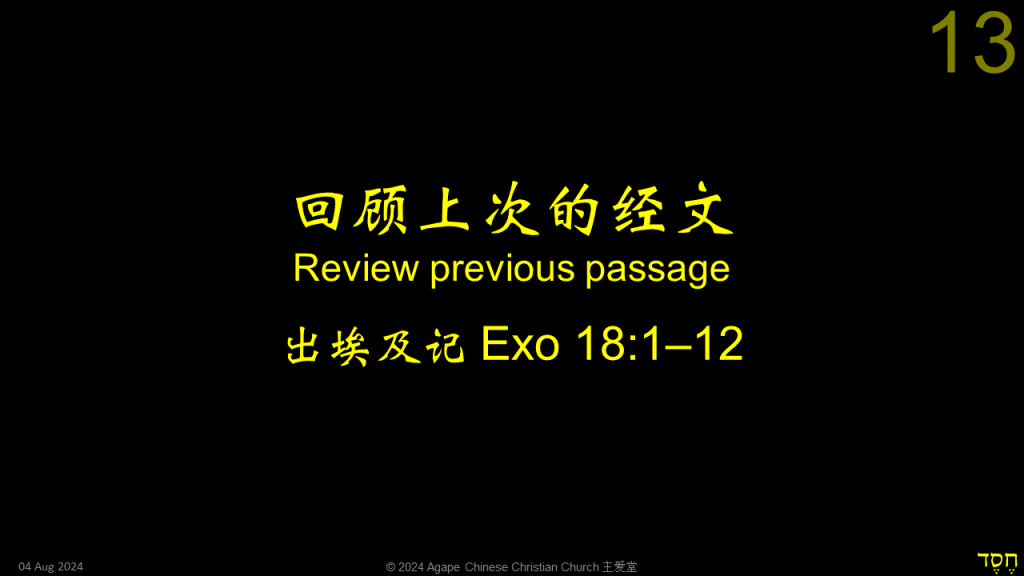
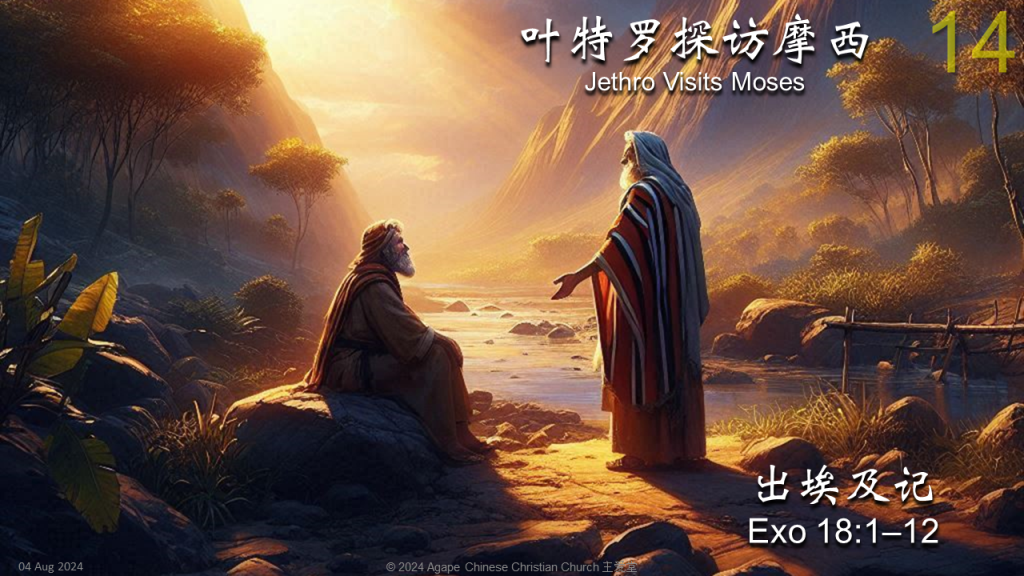
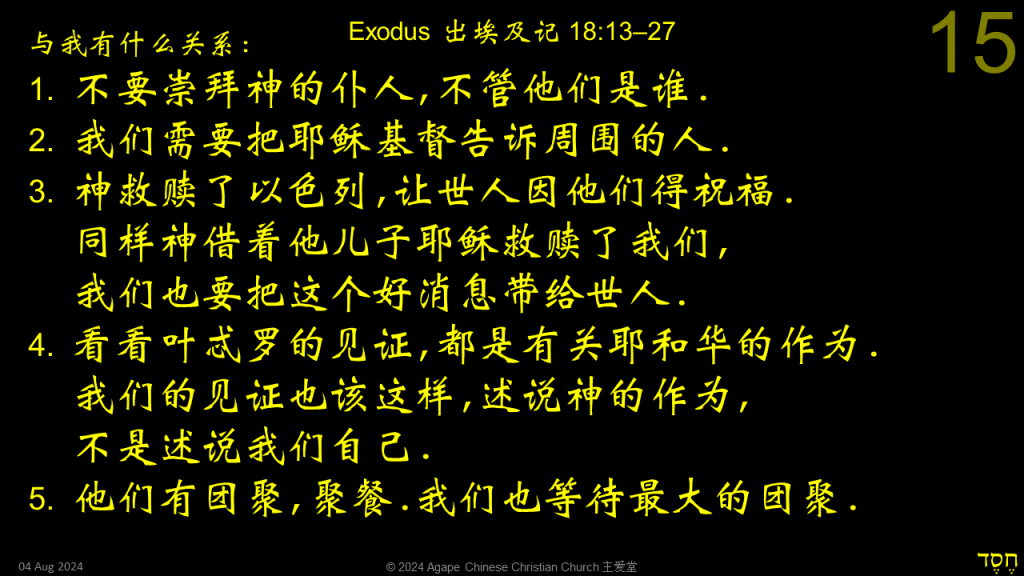
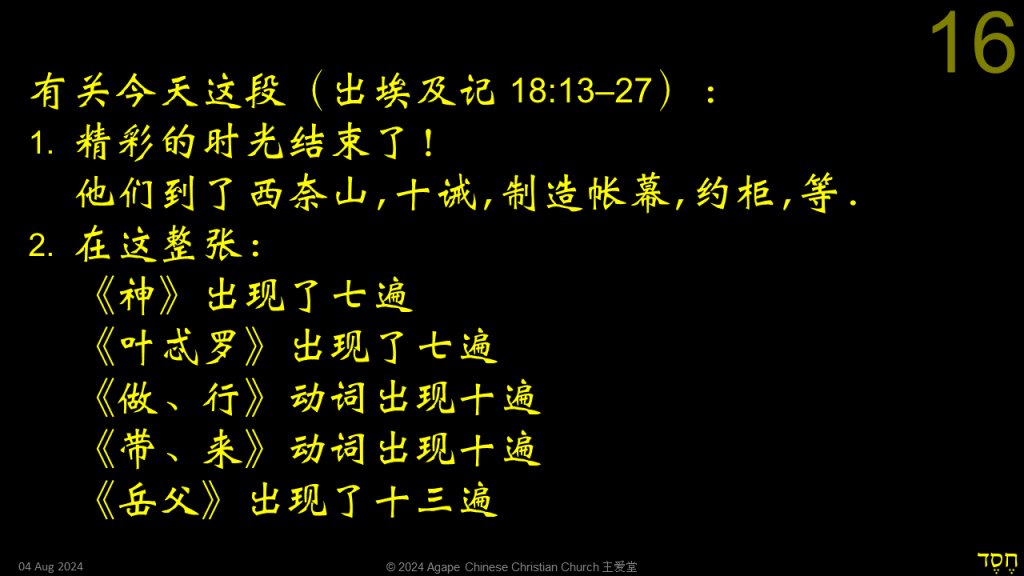
Passage
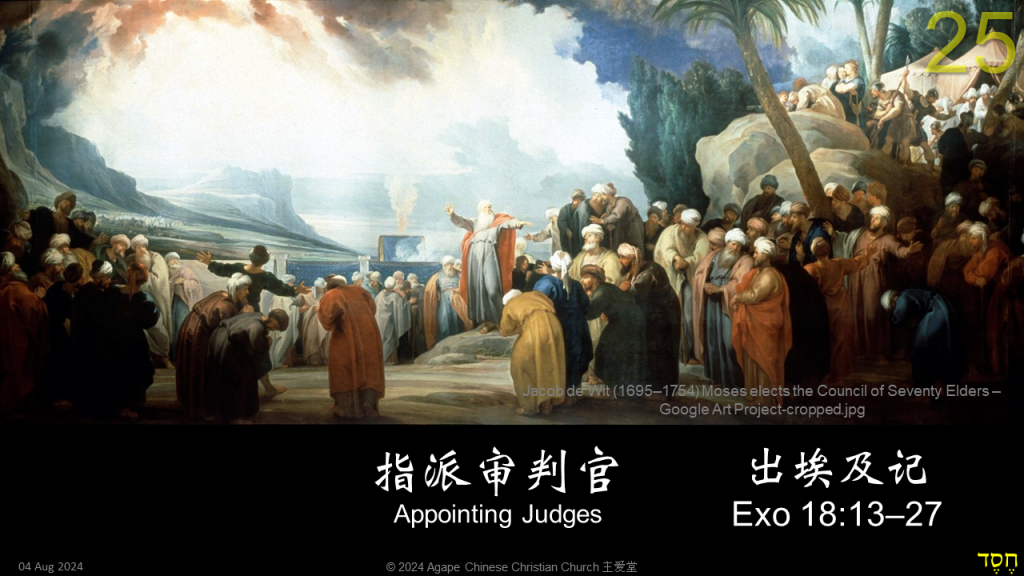
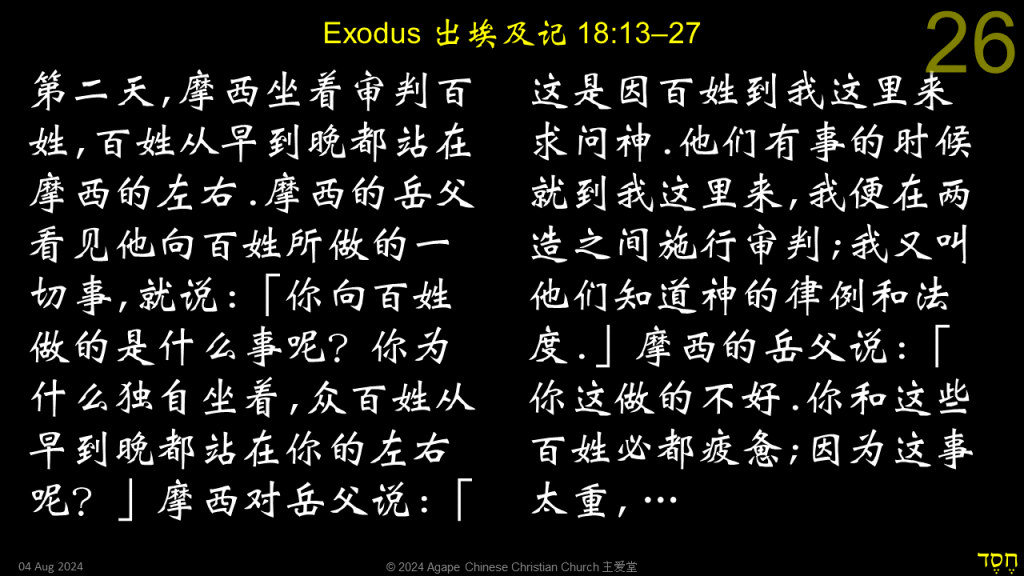
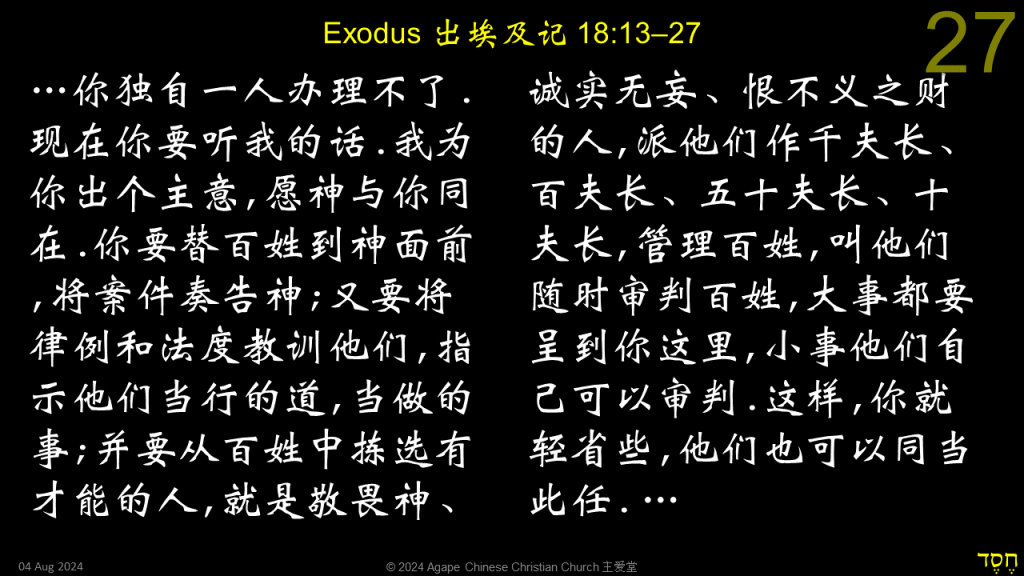
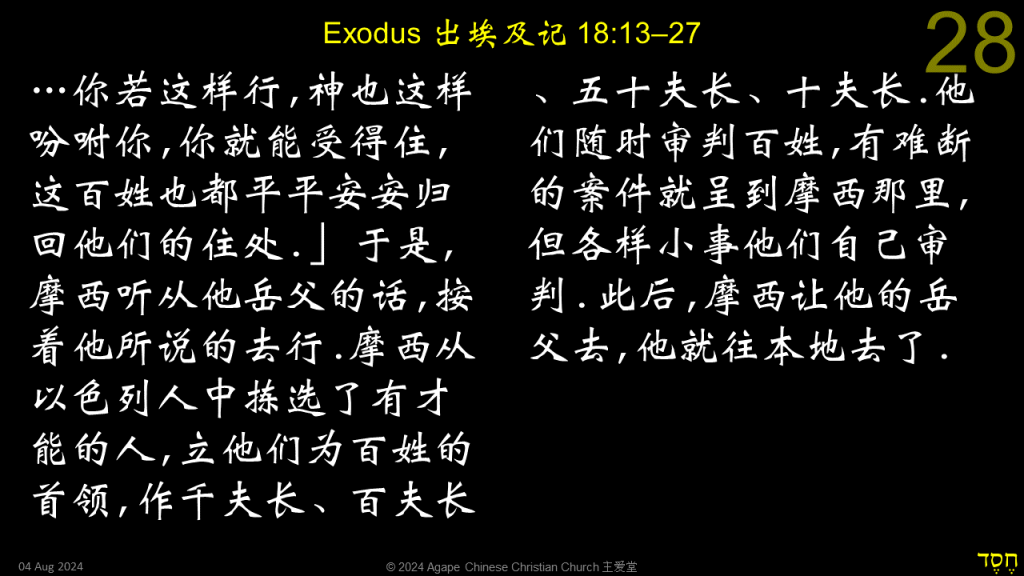
Passage in English
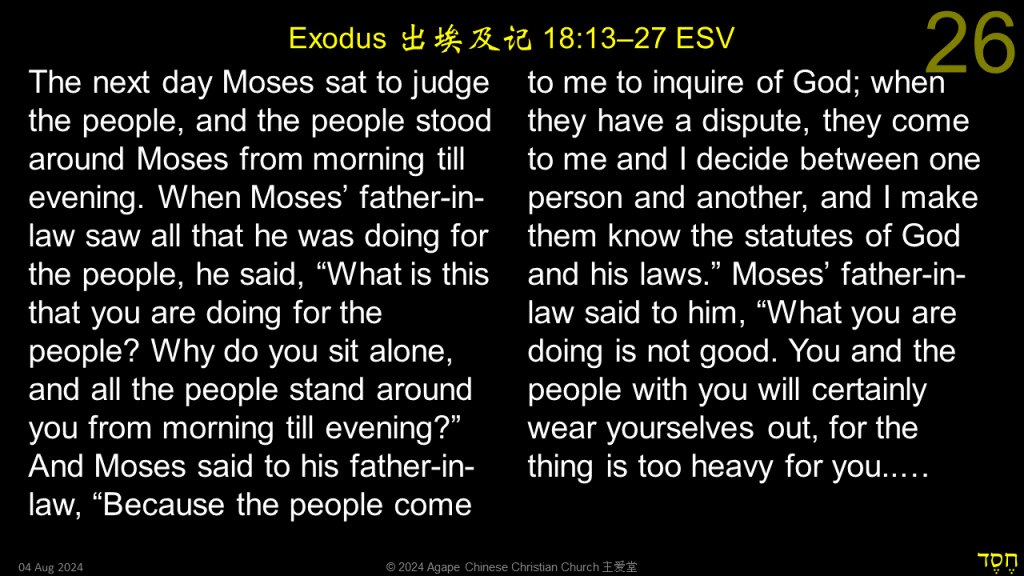
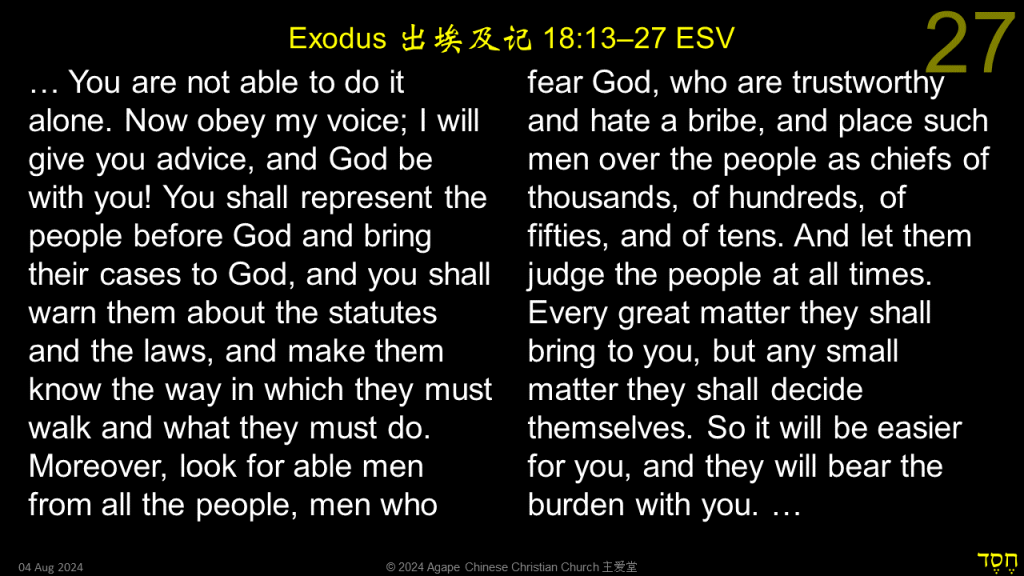
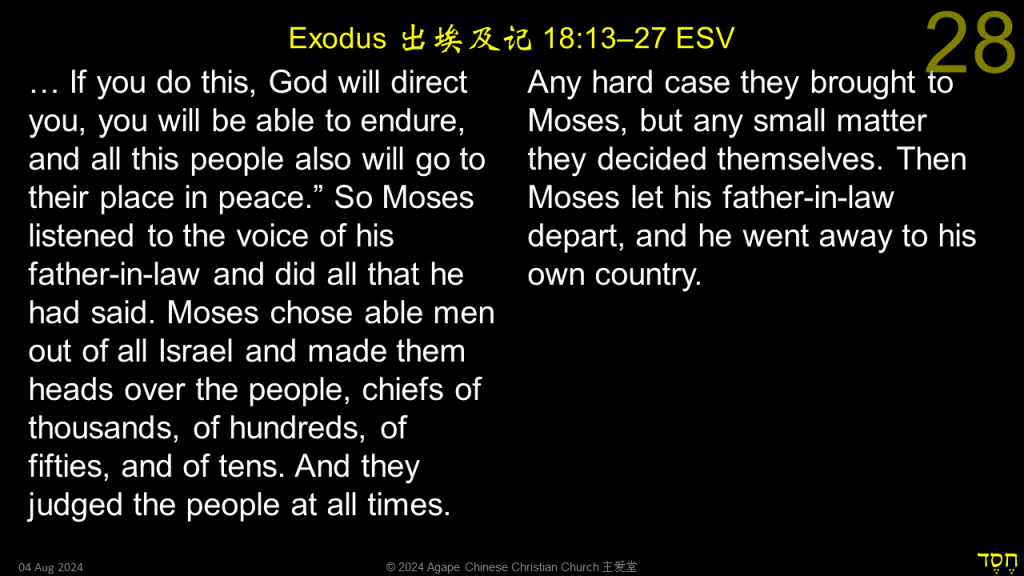
Hook
Three Questions for Today
- Do you like people giving you unsolicited advice?
What are the mindsets of people who welcome, or dislike, unsolicited advice? - Why is this passage here?
- “What you are doing is not good!” Where have we seen this before?
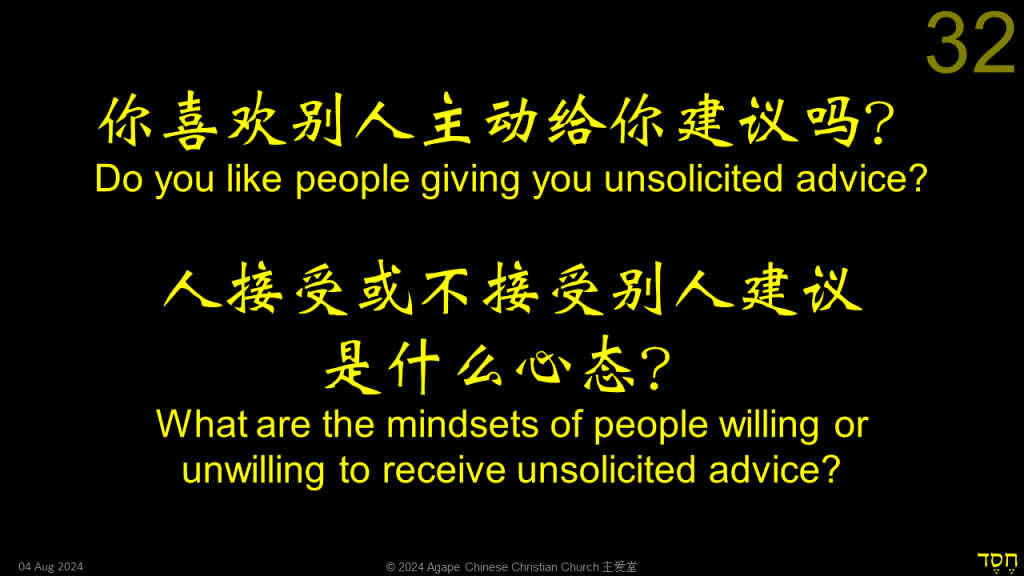
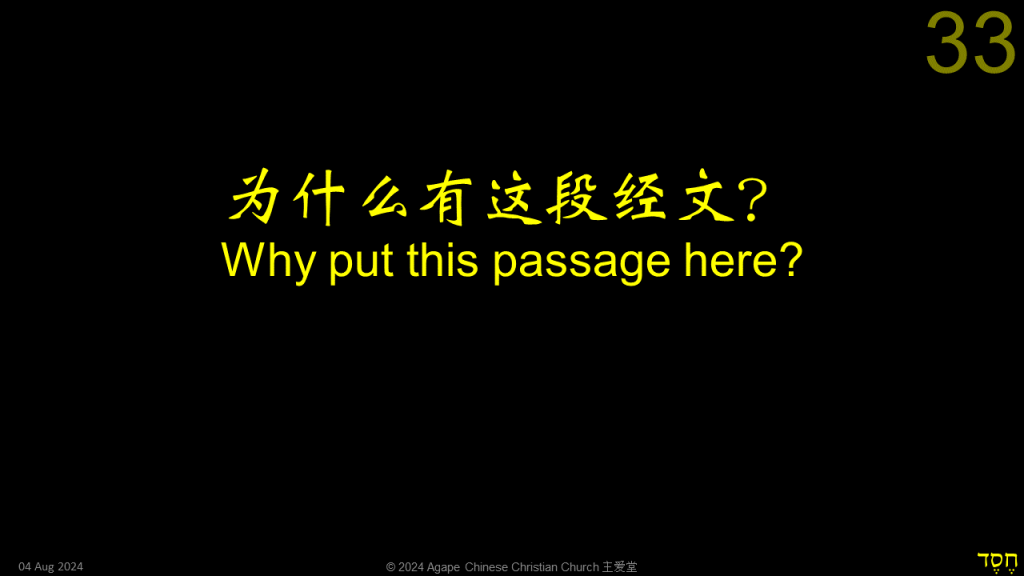
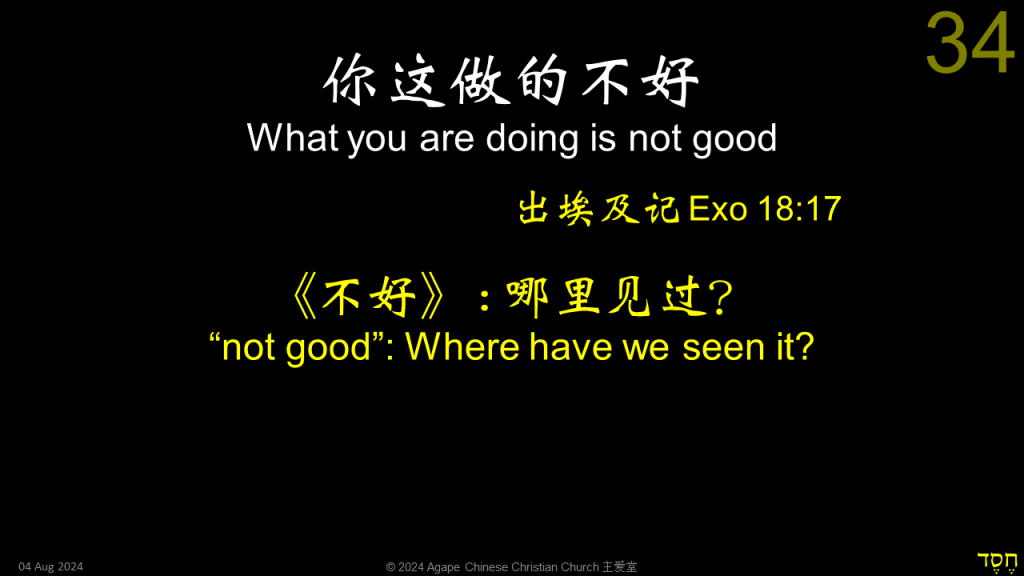
Outline
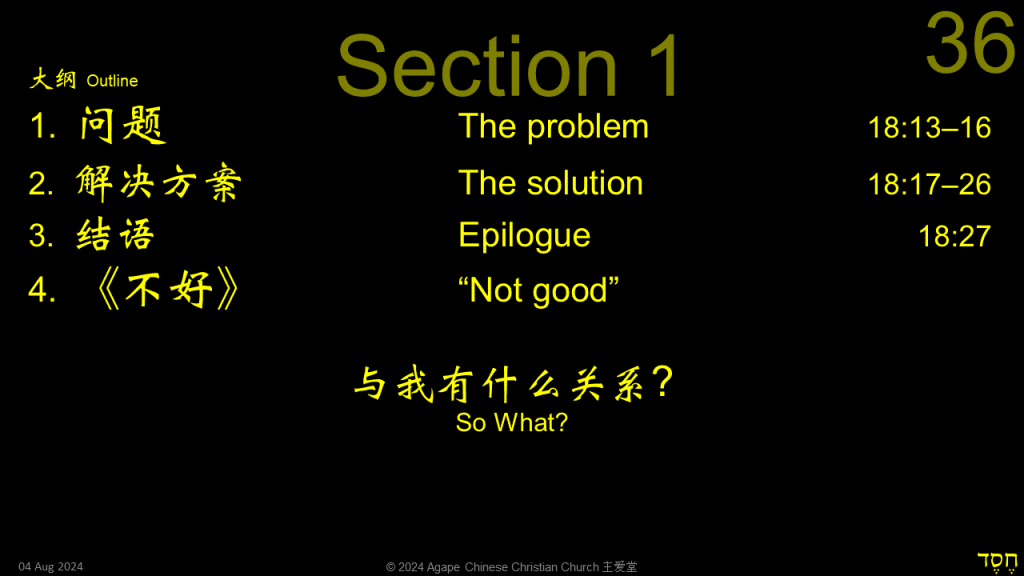
Section 1 问题 The problem 18:13–16
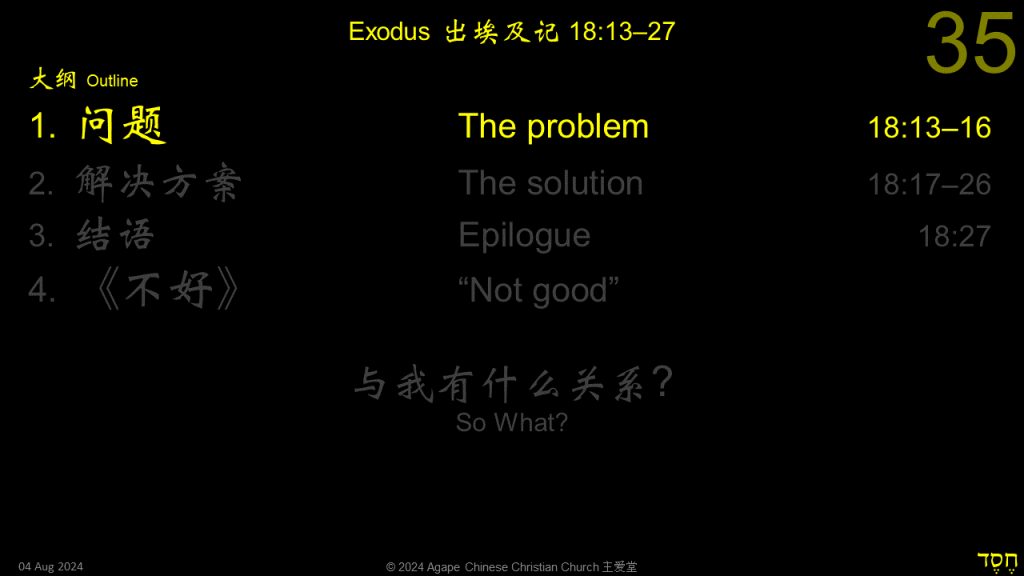
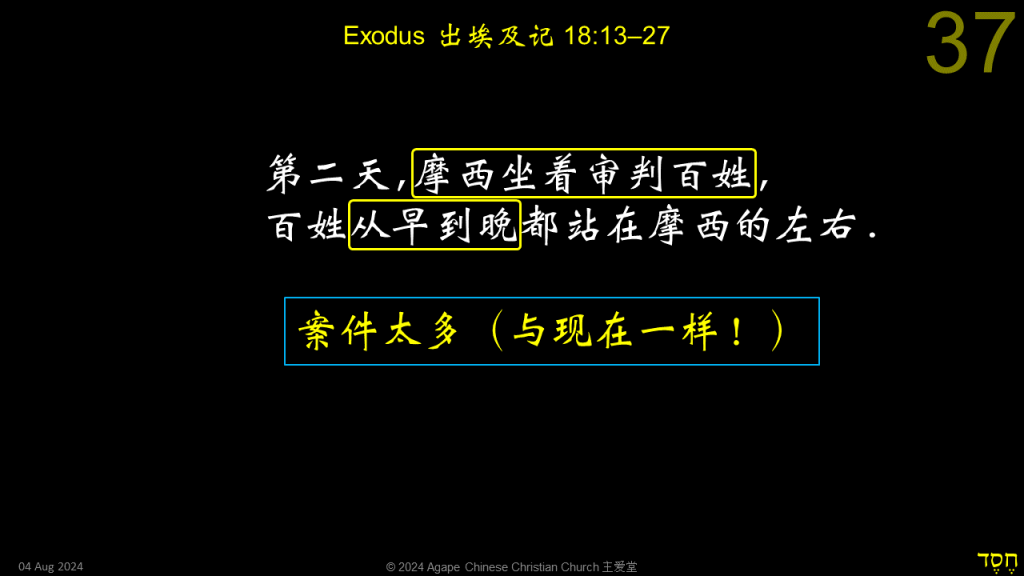
Note Moses was sitting down, while the people stood around him. This tradition is still in our courts today.
From morning till night, Moses was presiding over the people’s problems and disputes.
You can imagine how tiring it was!
There were too many cases; in fact, just like the courts today!
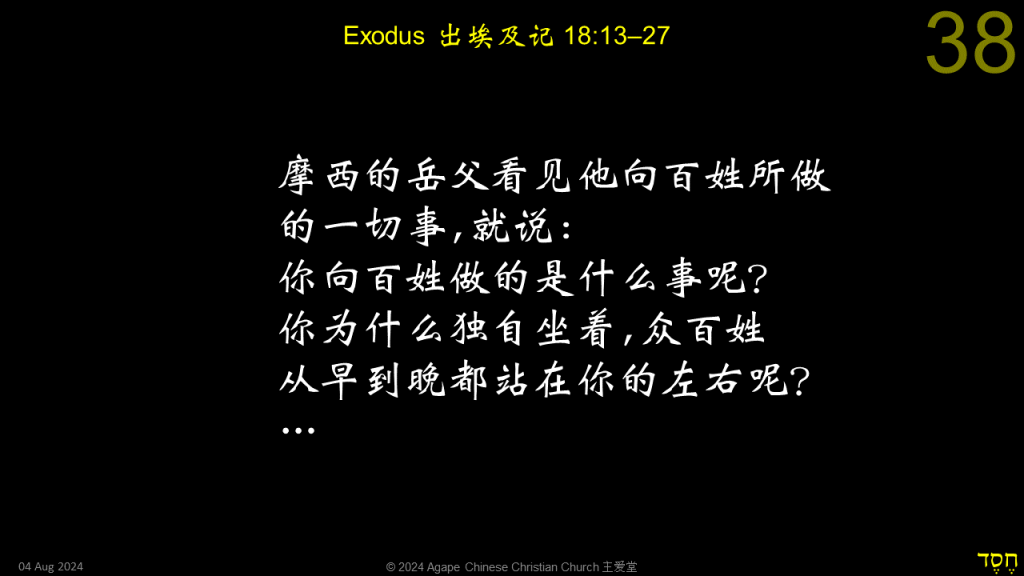
Jethro, Moses’ father-in-law, saw what Moses was doing, and was surprised
and wondered why he’s going this from morning till night.
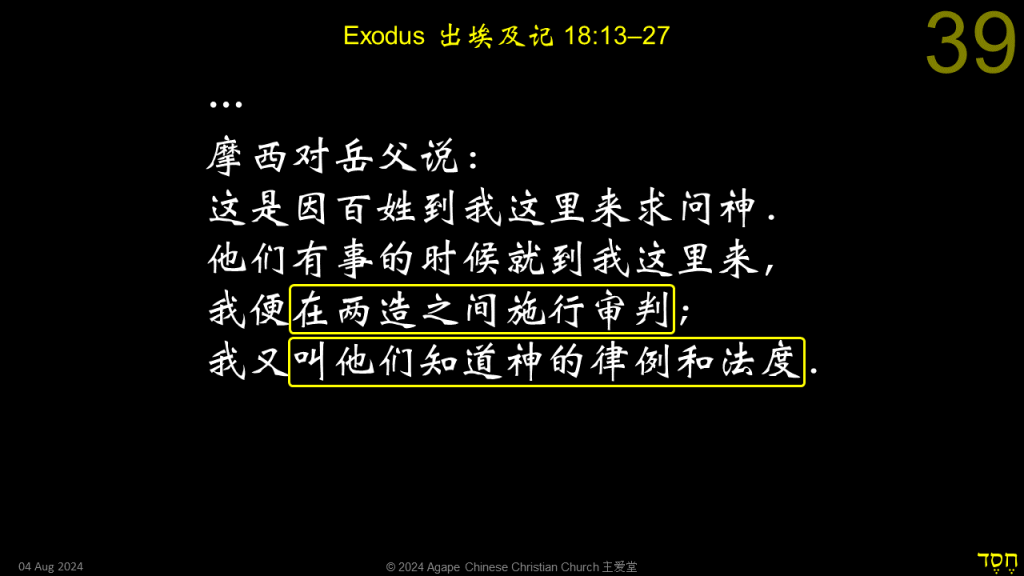
Moses was presiding over the people as judge (since he’s the single acknowledged leader).
Note also that he’s teaching them Gods laws and regulations. He’s acting like a prophet.
Section 2 解决方案 The solution 18:17–26
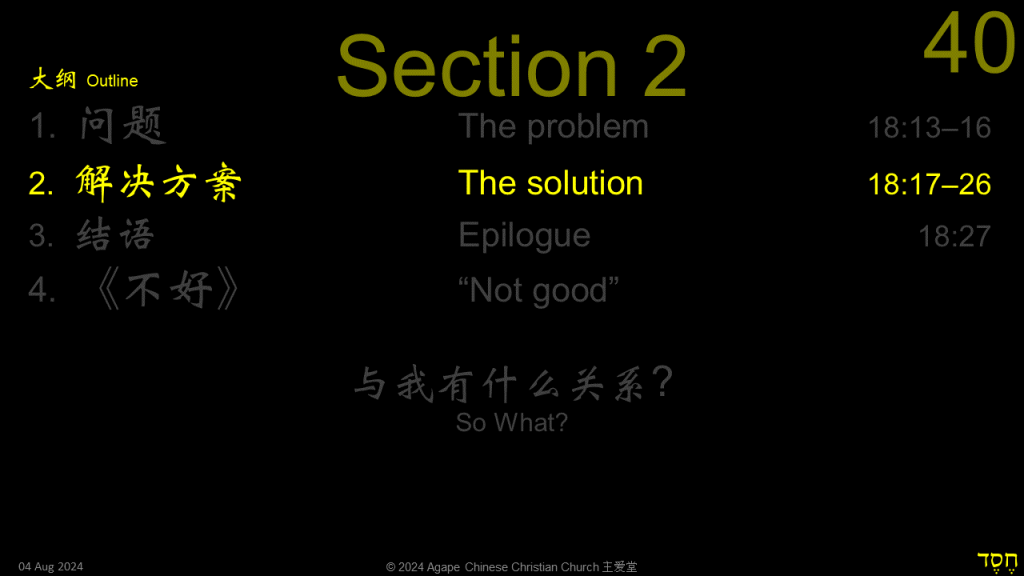
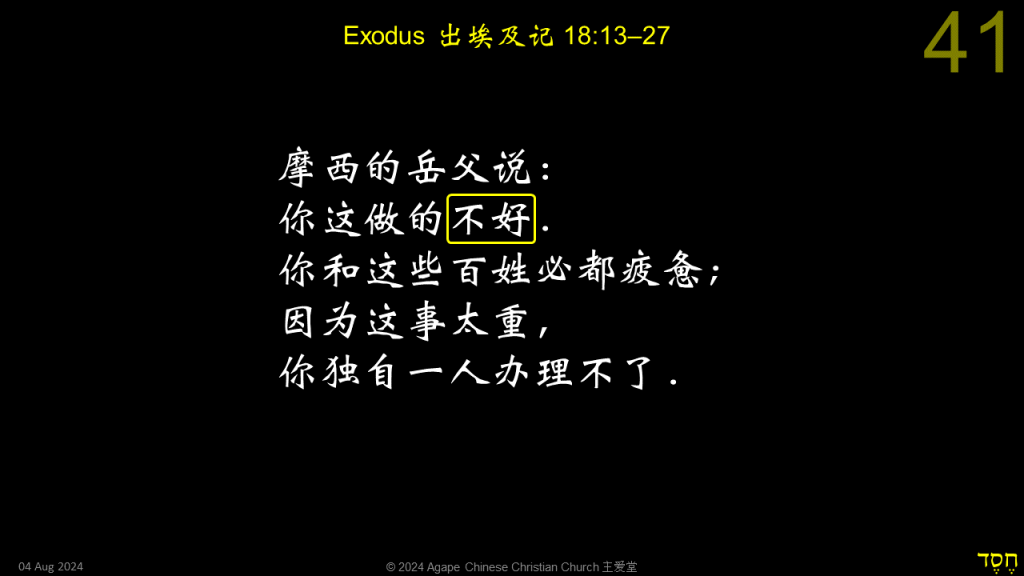
This is Exo 18:17, where we see “not good.”
Have you thought about where we’ve seen “not good” before?
We’ll come to this in Section 4.
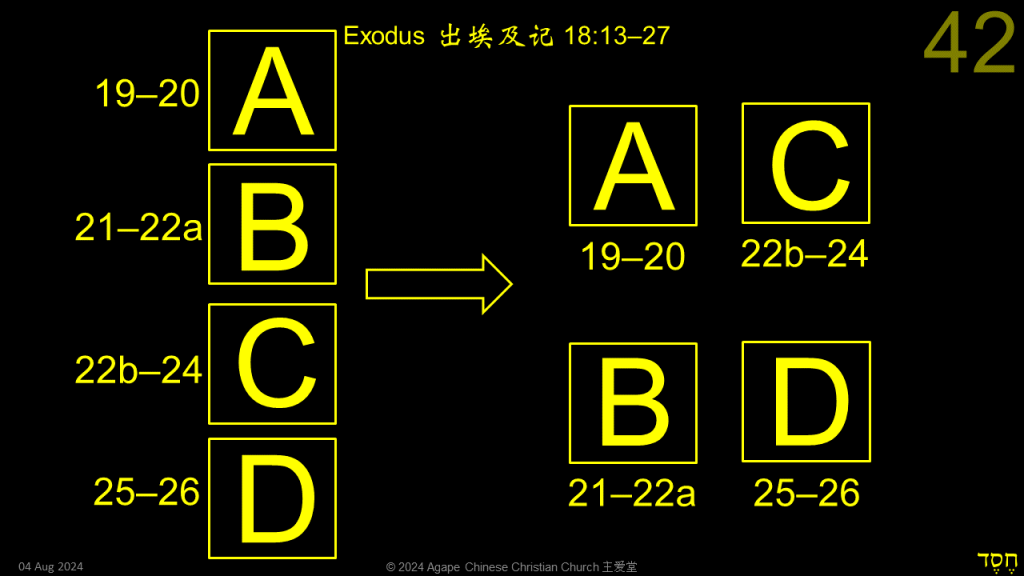
We’re looking now at the middle section, from Exo 18:19–26.
Normally, we’d look at this in the same order as the verses.
But today, we’ll do different sections in parallel.
So we’ll look at A and C together, B and D together.
This is because these sections have lots of repetition, so it’s easier to study them together.
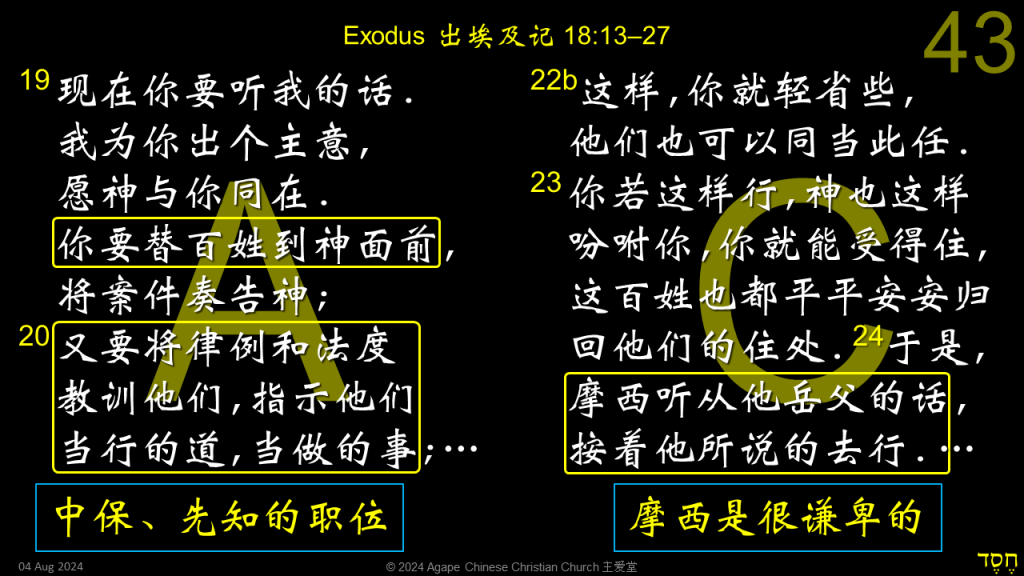
Moses is acting like a mediator, the go-between between YHWH and the people.
He’s also acting like a prophet. In fact, in Deut 18:15, he told the people to expect “another prophet like me” in the future.
This points to Jesus Christ, our ultimate mediator, prophet, priest, and king.
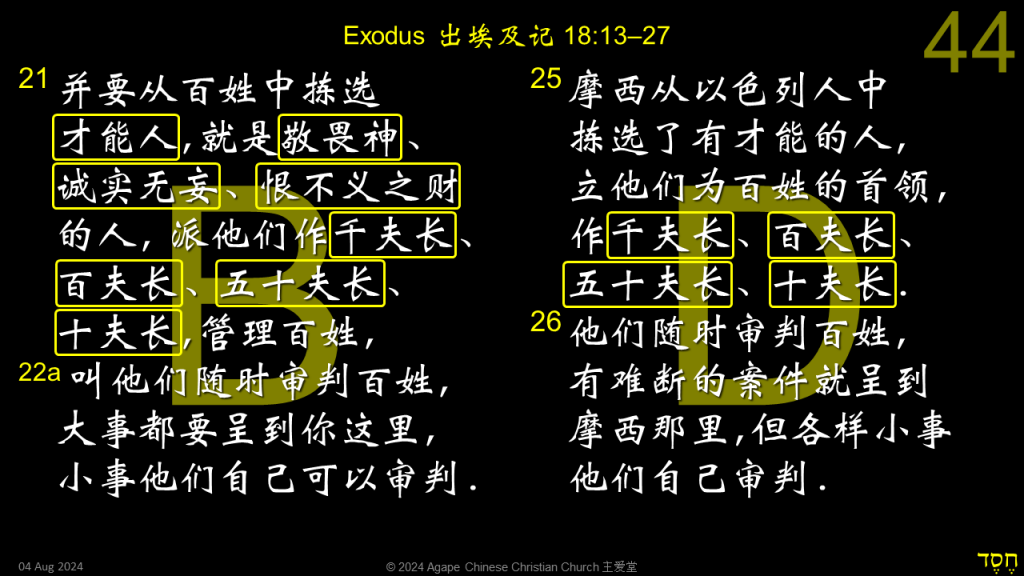
Lessons
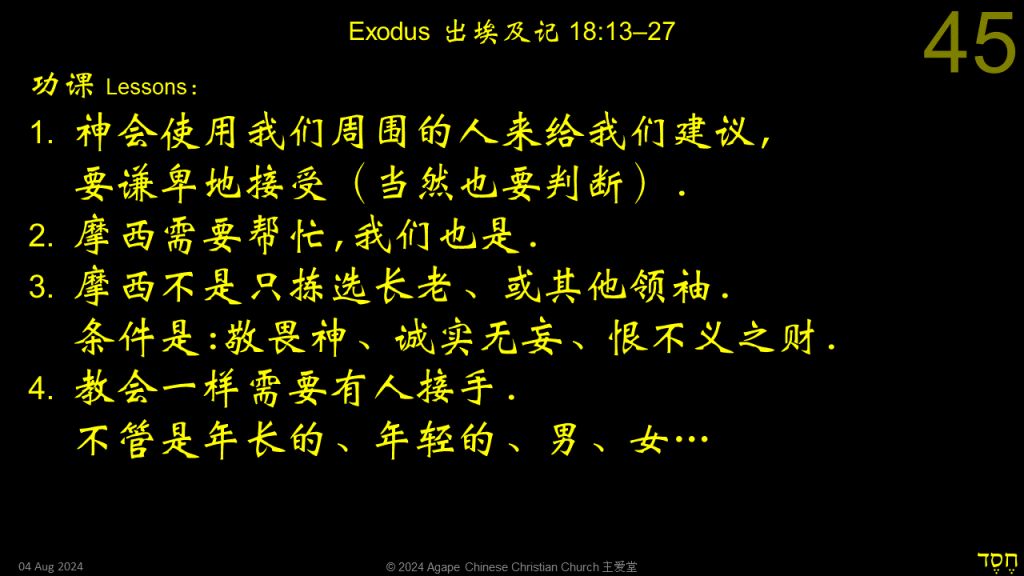
- God uses people around us to give us advice,
we have to be humble enough to accept these advice (of course, we still have to judge if an advice is valid). - Moses needed help, so do we.
- Moses didn’t choose from existing elders (or deacons, for that matter), or other leaders.
The only criteria are: they must be capable men, God-fearing men, men of truth, those who hate bribes. - It’s the same for the church, we also need people to take our place (succession planning!)
It doesn’t matter if these helpers are elderly, young, men, women…
Section 3 结语 Epilogue 18:27
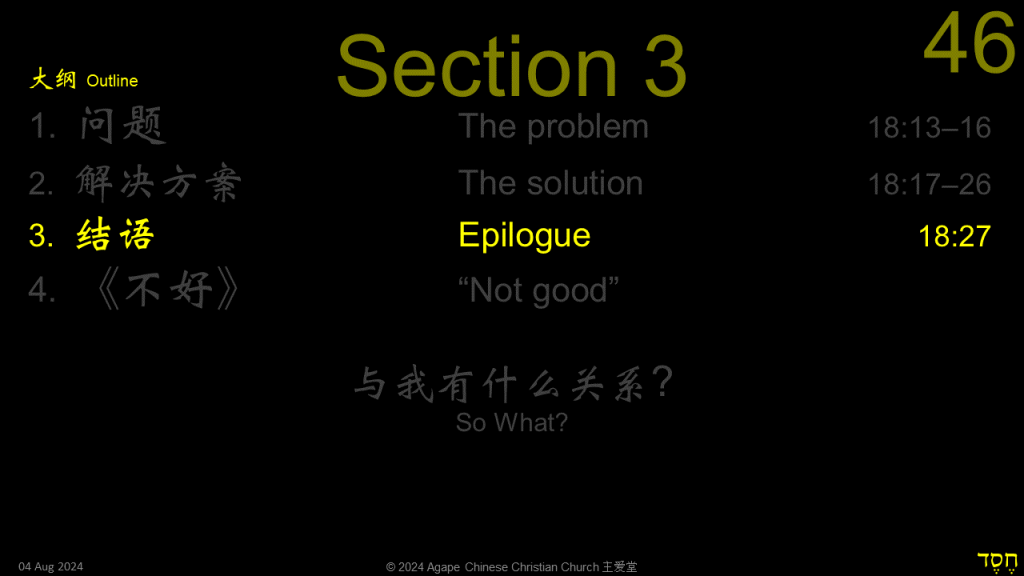
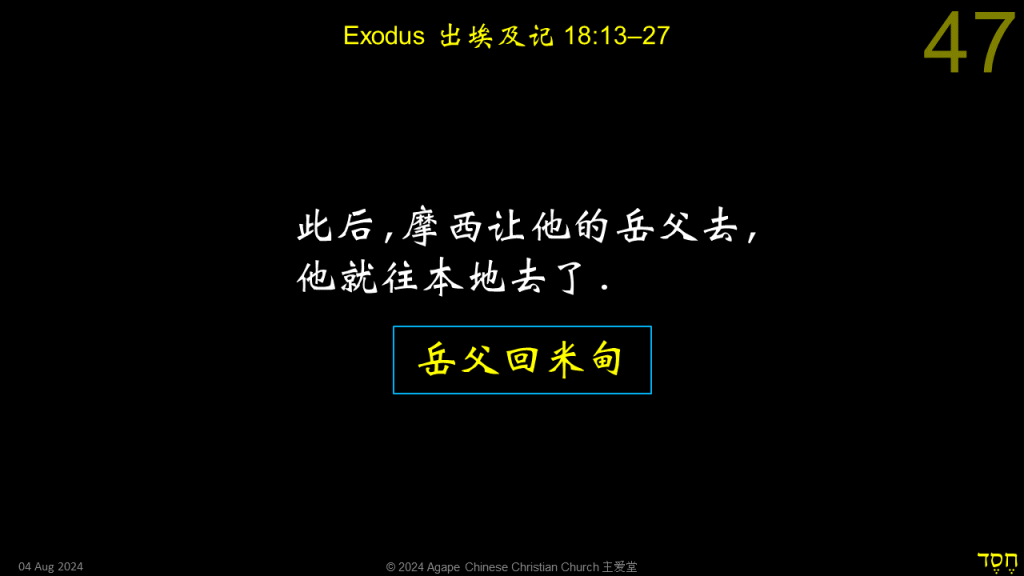
The text might sound like they parted on bad terms, or that Moses kicked Jethro out!
But that’s not the case. They parted amicably, and Jethro returned home to Median.
No doubt, Jethro will share his new-found faith with his people.
But unfortunately, we know later on (from the rest of the Pentateuch, OT, etc.) that
unlike Jethro, Median in general did not recognise YHWH as their God.
Section 4 《不好》 “Not good”
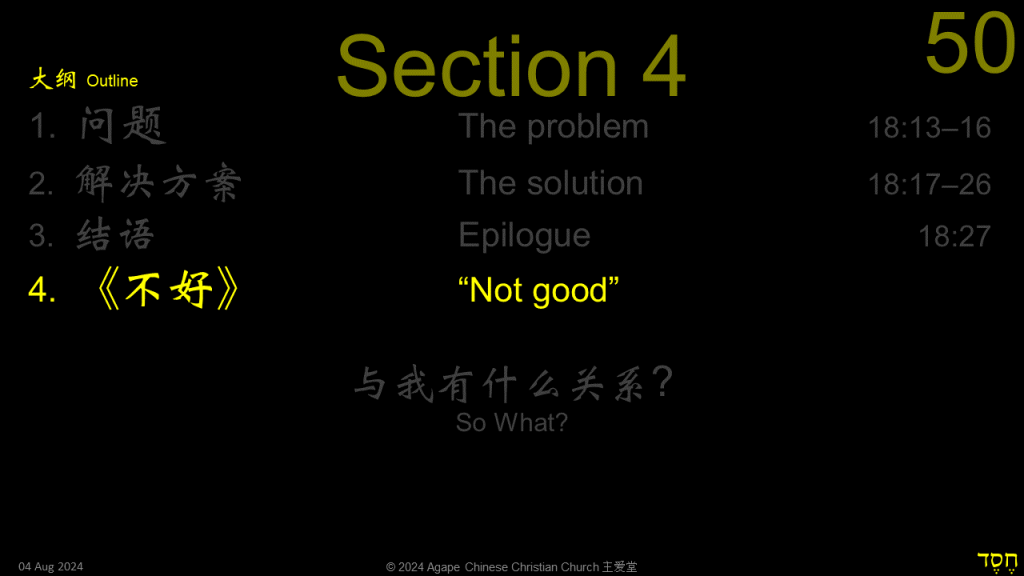
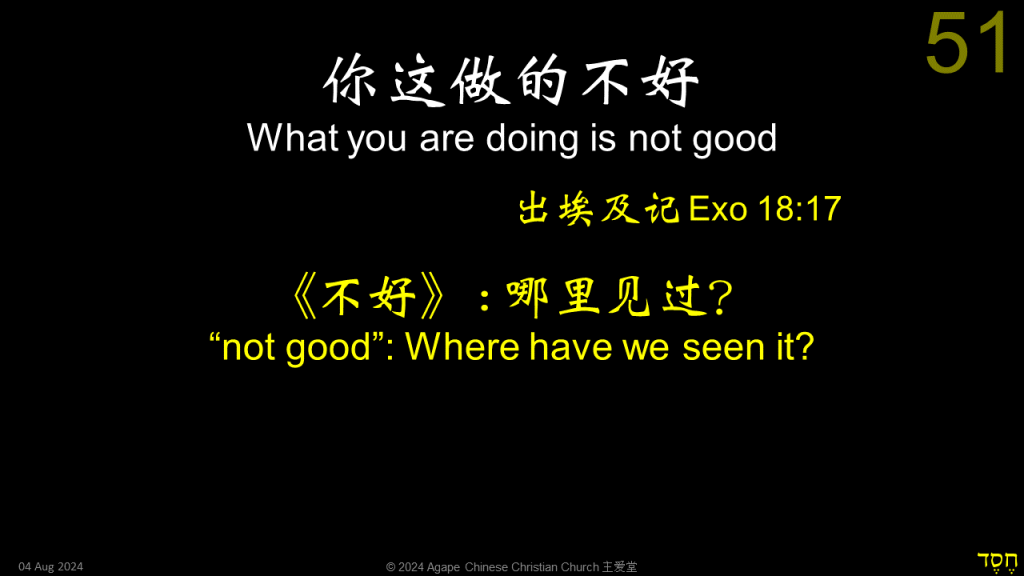
Now we come back to the question from the Hook.
Where have we seen “not good”?
Most of the following are from https://alephbeta.org.
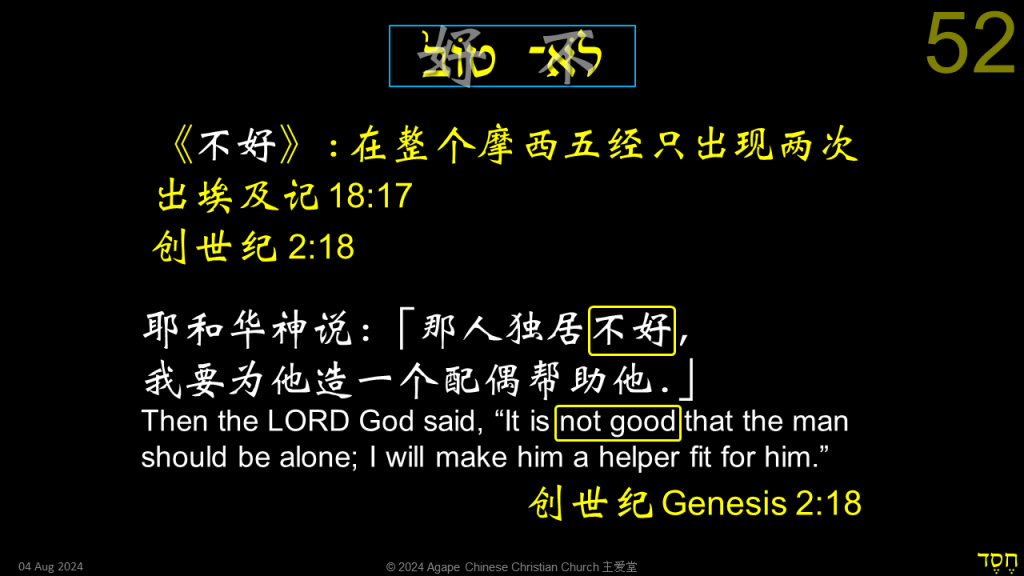
“Not good” translates two Hebrew words (the same for Chinese): לֹא־ טוֹב֙
It appears exactly like this in only two places in the entire Pentateuch:
Exo 18:17
Gen 2:18
This might just be coincidence, but the context of these two passages are also very similar.
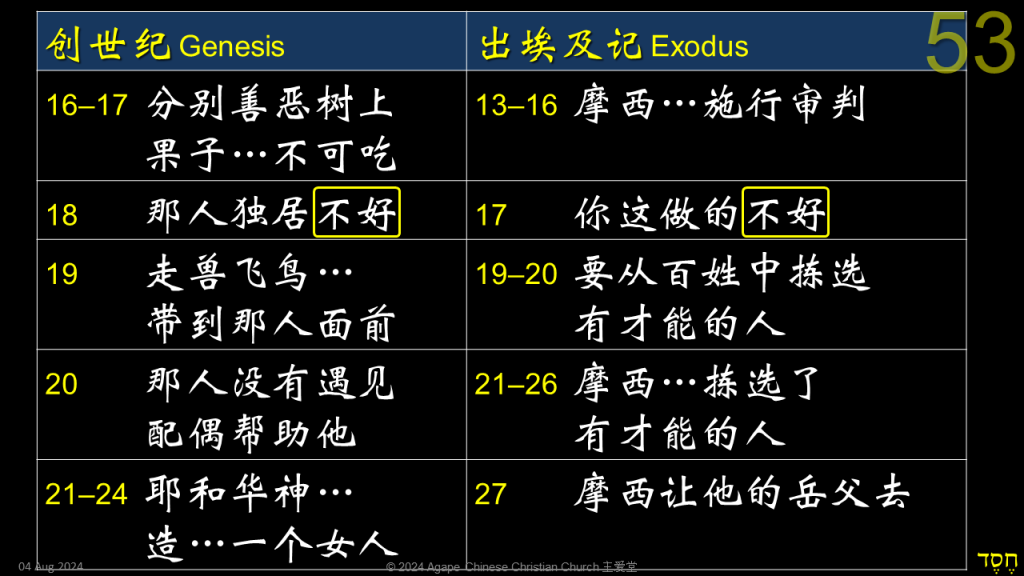
Compare the surrounding verses in both Genesis and Exodus (the English text of Slide 53 below).
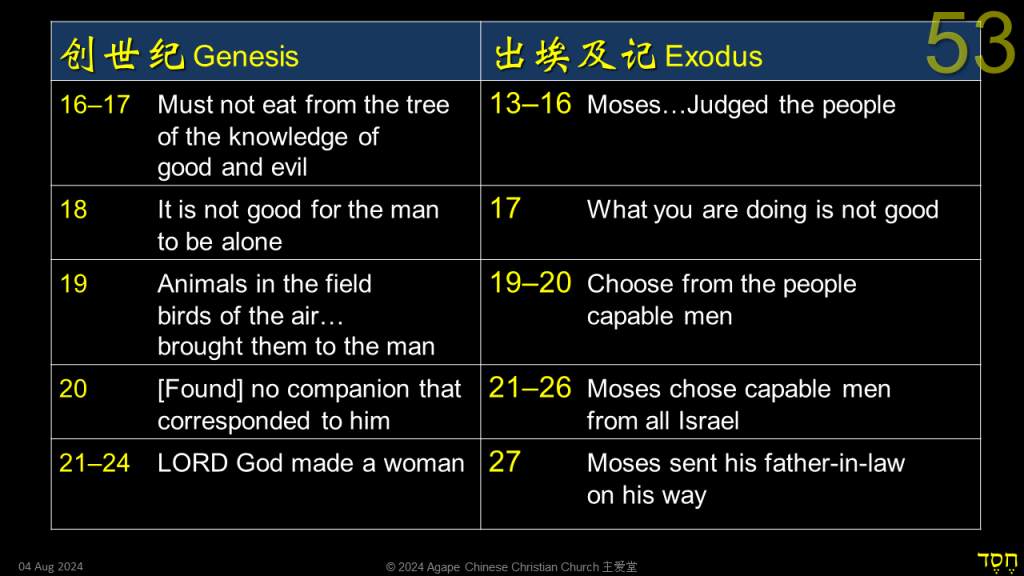
Lessons
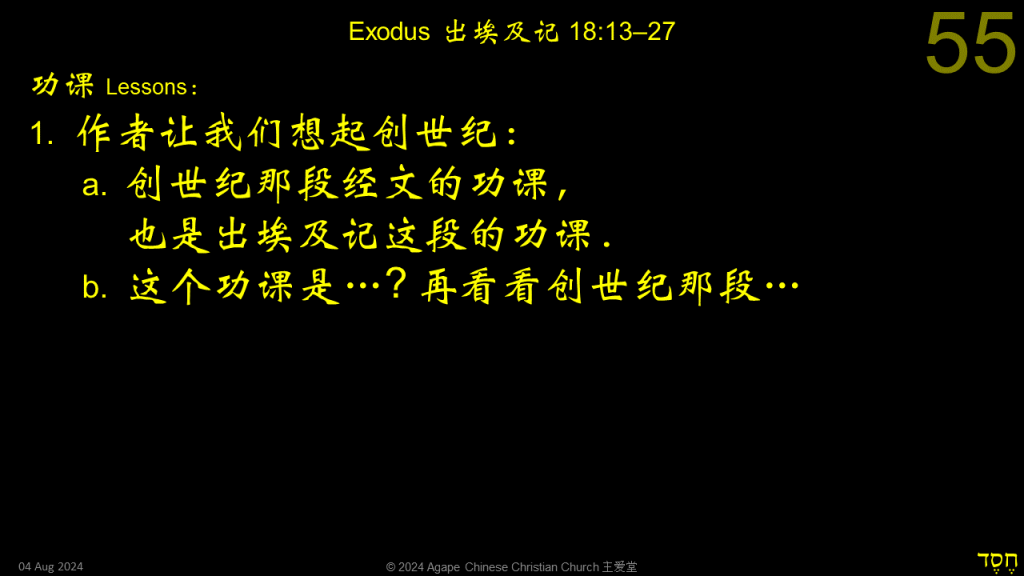
- The author (we believe it’s Moses) wanted us to think of Gen 2:18.
- This would mean the lessons from the Genesis passage
should be similar to the lessons from the Exodus passage. - What is this lesson? Let’s look at both passages again (Slide 53 above).
- This would mean the lessons from the Genesis passage
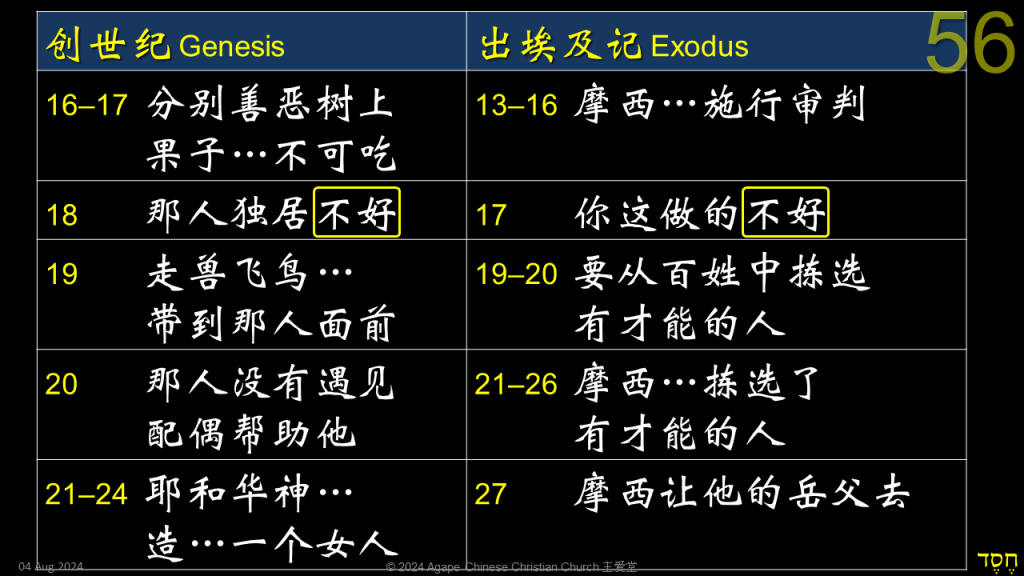
The Genesis passage begins with the prohibition about eating from the tree of the knowledge of good and evil.
Right after giving the prohibition, God said it’s not good for the man to be alone.
In the Exodus passage, Moses was also dealing with God’s laws and regulations, and that’s when Jethro said it’s not good.
God created a helper for the man, so that the helper will help him keep this command.
Same for Moses. He needed someone to help him be a judge over the people.
He needed someone to make sure he’s not deciding on good and evil himself.

- We all need help. It’s not good to be a dictator and have the power all to yourself.
- “No matter how great a man is, no matter how he ultimately justifies himself,
if he holds power and holds it alone, he is faced with the illusion that
his power, his authority, is greater than it actually is.”
与我有什么关系? So What?
